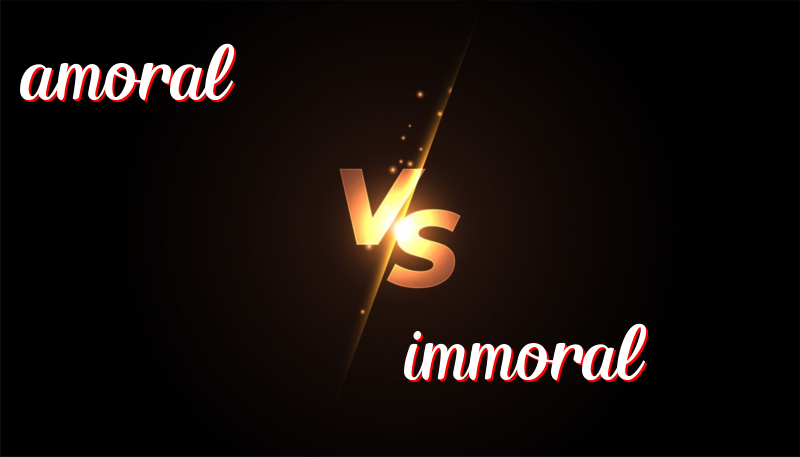Amoral vs. Immoral: Understanding the Differences
Understanding “Amoral” vs. “Immoral”
Many people find the words “amoral” and “immoral” confusing because they sound similar. Let’s explore what each word means, where they come from, and how to use them correctly.
History of the Words
Amoral: The word “amoral” comes from adding the prefix “a-” to “moral,” which means “without morals.” It first appeared in English in the 19th century.
Immoral: “Immoral” has been used since the 17th century. It comes from adding the prefix “in-” to “moral,” which means “against morals.”
Meanings and Usage
Amoral: If someone or something is “amoral,” they do not care about right or wrong. They have no moral sense or concern.
- The robot behaves in an amoral way, with no understanding of good or bad.
- He was amoral about the rules and did not think they mattered.
- Some animals act in an amoral way because they don’t know right from wrong.
- The amoral character in the story doesn’t understand why stealing is wrong.
- Her actions were amoral because she did not think about consequences.
Immoral: If someone or something is “immoral,” they go against what is right. They do things that are considered bad or wrong.
- It is immoral to cheat on a test.
- Lying to your friends is an immoral action.
- The villain in the movie is clearly immoral because he enjoys causing harm.
- Breaking promises on purpose is an immoral thing to do.
- People see stealing as an immoral act.
Trick to Remember the Difference
Think of “amoral” as “without morals,” like when someone does not know or care about right or wrong. Think of “immoral” as “against morals,” where someone knows something is wrong but does it anyway.
Summary
Use “amoral” when a person or thing does not consider if their actions are right or wrong. Use “immoral” when someone acts in a way that is against accepted standards of right and wrong. Now you know the difference between these two tricky words!

Leave a Reply
You must be logged in to post a comment.